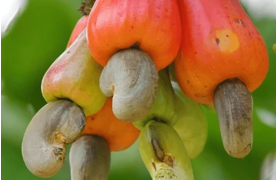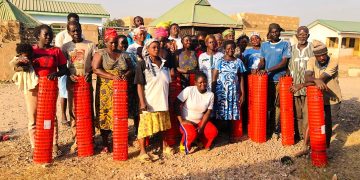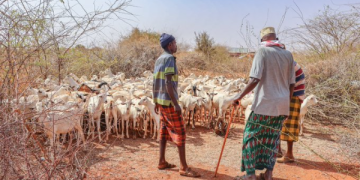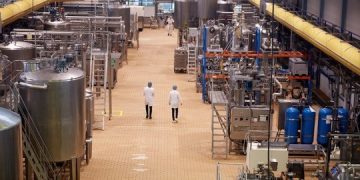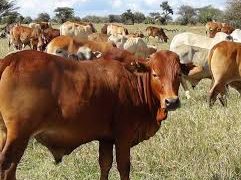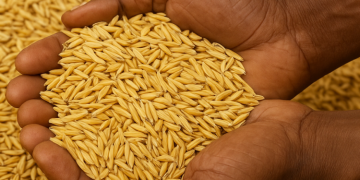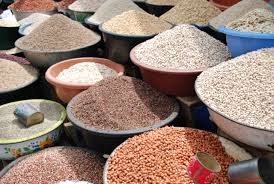The Chamber of Agribusiness Ghana (CAG) has called on government to as a matter of urgency protect local rice and maize producers from devastating effects caused by rising imports and rampant substandard grains smuggling into the local market.
The Chamber noted that its recent engagements with stakeholders and members revealed that an estimated 100,000 metric tonnes of paddy rice and maize from the 2024 harvest season remain unsold, while farmers across the country are being forced to sell below production cost due to artificial glut.
”With the 2025 harvest season for rice approaching, the crisis could escalate further; putting farmer livelihoods, processing industries and Ghana’s food security at risk. Ghanaian farmers are being pushed out of business by unfair competition,” CAG said.
According to the Chamber, smuggled rice and maize, evasion of duties and quality checks are some of the challenges confronting the sector.
CAG says failure to implement swift government intervention risks collapsing the entire subsectors.
Key concerns
CAG emphasised that smuggled grain undercuts local produce by evading duties, taxes and safety checks.
These smuggling syndicates, according to the Chamber, connive with some unscrupulous immigration and Customs officials.
The Chamber also expressed concern that rice mills and maize processors are shutting down or running below capacity.
It is also concerned that the country is becoming increasingly dependent on foreign imports, undermining national food sovereignty.
Recommendations
The Chamber appealed for government to tighten border controls by equipping Customs and security agencies to clamp down on smuggling routes.
It added that culprits of smuggling syndicates must be sanctioned when apprehended.
CAGC is also calling for an urgent high-level dialogue between government, private sector stakeholders and farmer associations to agree on practical steps ahead of upcoming harvests.
In a related development, the Chamber has called for a revival of Nkrumah’s agro-industrial vision and footprints as part of the country’s quest to modernise agriculture and food production.
A statement by CAG to commemorate the 116th birthday of Dr. Kwame Nkrumah appealed for government to revive Nkrumah’s agro-industrial vision, which remains the most coherent blueprint for self-sustaining economic growth.
It noted that Nkrumah’s 40-Year National Accelerated Development Plan was a bold effort to secure economic sovereignty beyond political independence.
The Chamber stressed that the agro-industrial vision places agriculture at the centre of industrialisation, adding that factories such as the Asutuare Sugar Factory, Bolgatanga Meat Processing Factory and Wenchi Tomato Factory were established for adding value to produce and reducing post-harvest losses.
It added that Nkrumah’s agro-industrial vision extended to supporting sectors like textiles, packaging, tyres and steel production, all working together to sustain growth.
According to the Chamber, Ghana must adopt a modern version of this framework guided by a 40-year national agro-industrial strategy. It recommended developing agro-industrial clusters, creating agro-processing parks and investing in infrastructure through public-private partnerships.
CAG pledged to work with government, development partners and private sector stakeholders on translating this vision into policies and programmes.
It maintained that only integrated and long-term planning can position agribusiness as the true engine of inclusive growth.
CAG believes that the best way to honour Dr. Nkrumah’s legacy is by reviving his commitment to integrated, long-term development planning. In that spirit, the Chamber called on government to adopt a contemporary, public-private partnership driven version of this visionary blueprint.
Specifically for the revival of agro processing, the Chamber appealed for implementation of an integrated sector development strategy.
This strategy, according to CAG, must move beyond siloed interventions to include developing agro-industrial clusters by incentivising core sectors (e.g. cereals, poultry) alongside adjacent industries such as feed mills, vet pharmaceuticals, packaging and cold-chain logistics as part of the 24H+ and Volta corridor industrial policies.
The Chamber also appealed for revitalisation of foundational infrastructure through PPPs: to include prioritisation of substantial public-private investment in reliable energy, expanded irrigation, and rural road networks; which forms an essential backbone of a competitive agribusiness sector.
Also, the Chamber has asked that government keenly prioritise investment in agri-tech and future-ready human capital.
According to CAG, this must align with an agenda of educational and training programmes with the skill demands of a modern agro-industrial economy, fostering a new generation of innovators, engineers and agripreneurs.
Source: thebfnews.online















